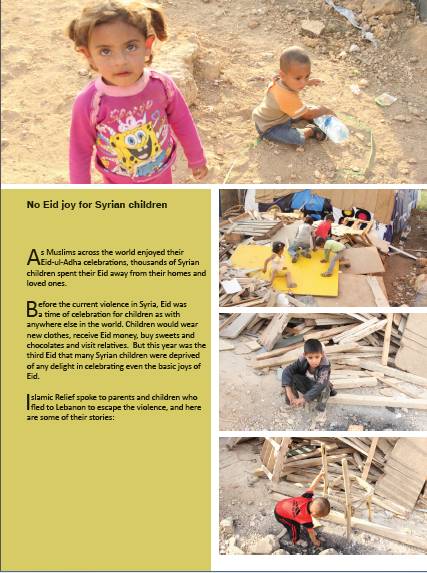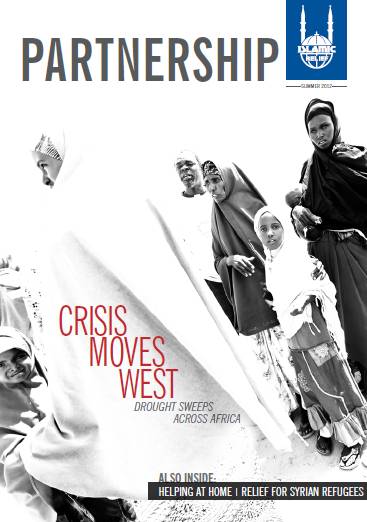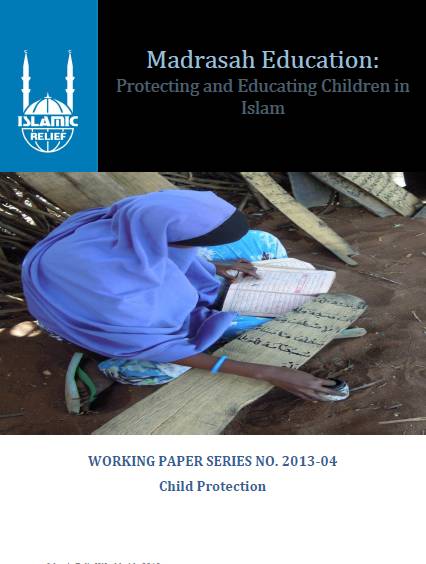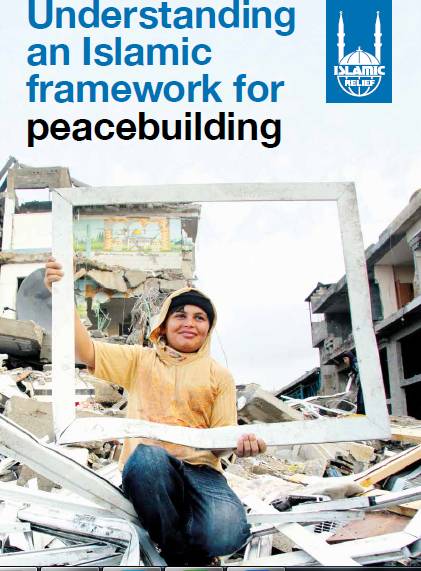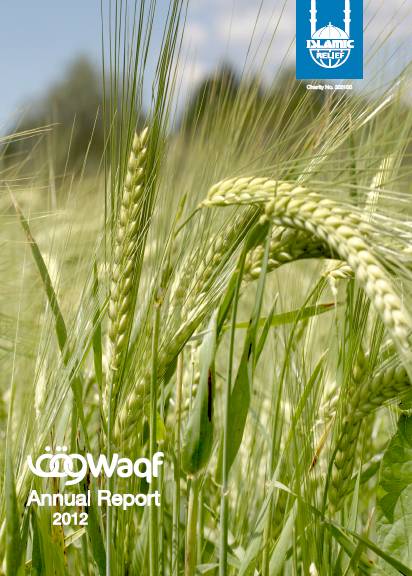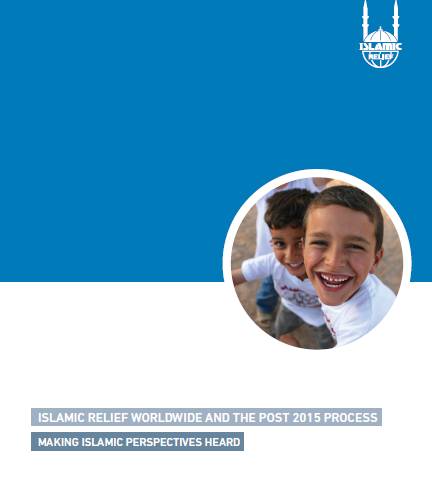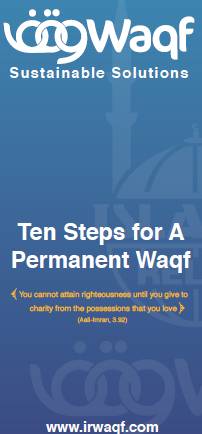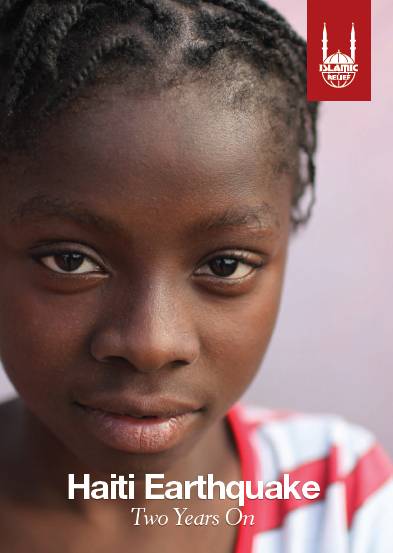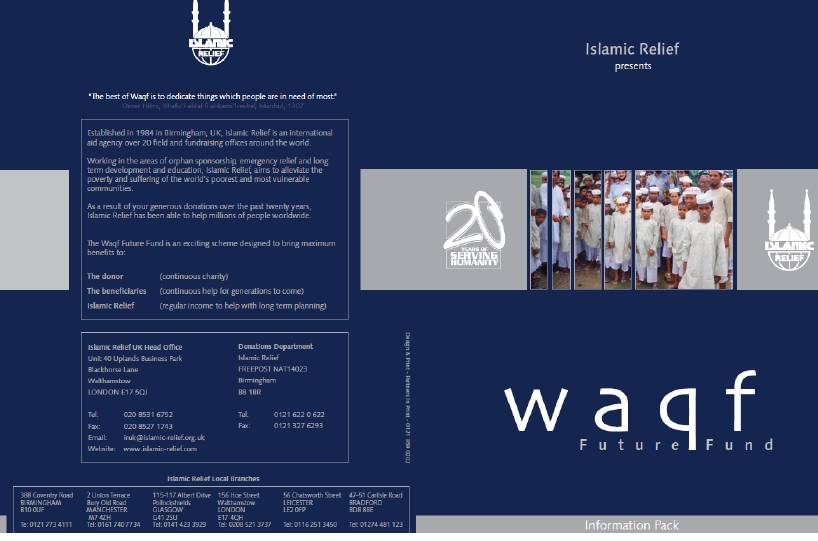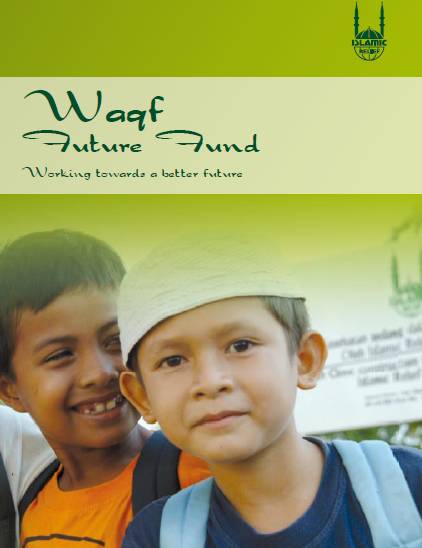No Eid Joy for Syrian Children
moh2023-05-02T11:15:23+00:00As Muslims across the world enjoyed their Eid-ul-Adha celebrations, thousands of Syrian children spent their Eid away from their homes and loved ones. Before the current violence in Syria, Eid was a time of celebration for children as with anywhere else in the world. Children would wear new clothes, receive Eid money, buy sweets and chocolates and visit relatives. But this year was the third Eid that many Syrian children were deprived of any delight in celebrating even the basic joys of Eid. Office http://policy.islamic-relief.com/ Citation IR Policy & Programmes. (2012). No Eid Joy for Syrian Children . [Online] Available: http://policy.islamic-relief.com/wp-content/uploads/2014/05/No-Eid-Joy-for-Syrian-Children.pdf


